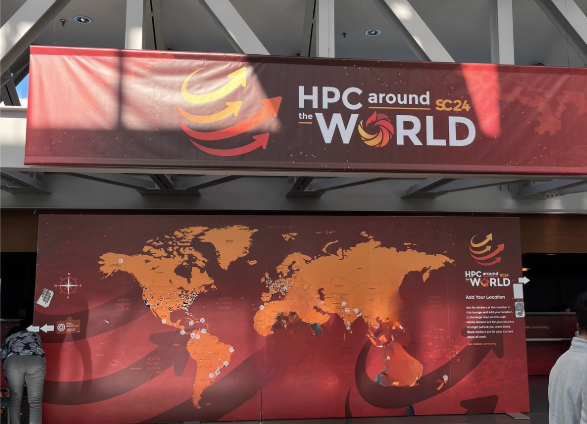Key Insights and Emerging Trends from Supercomputing Conference 2024 (SC24)
18 Dec, 20246 min
The Supercomputing Conference 2024 (SC24) brought together leading experts and innovators in high-performance computing (HPC) to discuss recent breakthroughs and emerging trends. Held in Atlanta, the event showcased developments in exascale computing, AI-HPC integration, sustainability, and much more. Here are the key insights from this year’s conference.
Revolutionising HPC: Exascale, AI, and Beyond
The progress toward exascale computing was a highly discussed topic. Conversations moved beyond theoretical peak performance, focusing instead on sustained, real-world achievements. Systems such as Frontier, Aurora, and El Capitan were showcased as transformative platforms for solving complex scientific and engineering challenges, with benchmarks providing compelling evidence of their impact. These systems not only highlight advancements in hardware but also emphasize the importance of optimizing software and workflows to unlock their full potential.
AI’s role in reshaping HPC workflows was another dominant theme of SC24, marking the merging of two transformative technologies. From accelerating model training to enhancing scientific simulations, AI is no longer a complementary tool but a core element of modern HPC systems. Companies demonstrated breakthroughs in AI hardware, including GPUs, TPUs, and AI-specific accelerators, which are enabling faster, more efficient computations. This integration is not just about performance; it represents a fundamental shift in how HPC systems operate, blending traditional computational models with the adaptability and intelligence of machine learning frameworks.
Energy Efficiency and the Path to Greener HPC
As HPC systems grow more powerful, their energy consumption has become an urgent concern, making sustainability a pivotal topic at SC24. Innovative solutions were discussed to reduce the environmental footprint of HPC, from liquid cooling technologies to renewable energy integration and workload optimization strategies. These efforts are not just technical challenges but moral imperatives, reflecting the industry’s responsibility to balance computational growth with environmental stewardship. By prioritizing energy-efficient designs and exploring alternative energy sources, HPC leaders are laying the foundation for a more sustainable future.
Expanding Horizons: Edge, Cloud, and Quantum Computing
HPC is evolving beyond its traditional confines, with edge computing and hybrid cloud environments taking center stage at SC24. Presentations highlighted use cases such as real-time processing for IoT applications, autonomous systems, and industrial operations, where decentralized computing capabilities are proving essential. By enabling faster, localized data processing closer to the source, edge HPC is unlocking new possibilities for industries requiring agile and immediate insights. Hybrid cloud solutions complement this approach, allowing organizations to scale HPC workloads seamlessly while maintaining flexibility and cost-efficiency.
Quantum computing, although still in its early stages, is beginning to complement classical HPC systems, offering glimpses of a revolutionary future. At SC24, organizations presented hybrid solutions that integrate quantum algorithms with traditional architectures to tackle problems previously deemed unsolvable. While the technology remains experimental and faces significant hurdles, its potential to transform fields such as cryptography, optimization, and materials science is undeniable. The interplay between quantum and classical systems represents a promising frontier for HPC innovation.
Software, Networking, and Talent: Building the Future of HPC
There was a big emphasis on scalability, portability, and interoperability across architectures, showcasing that need for adaptable and scalable software is greater than ever. SC24 also showcased advancements in frameworks such as OpenMP and MPI, which are improving portability and performance across varied systems. These developments are crucial for ensuring that software can keep pace with the rapid evolution of hardware. Networking innovations also took center stage, with breakthroughs in high-speed interconnects like InfiniBand and next-generation Ethernet reducing bottlenecks and optimizing data flow. Together, these advancements are creating a more cohesive and efficient HPC ecosystem capable of meeting the demands of increasingly complex workloads.
As HPC systems grow more sophisticated, the demand for skilled professionals with hybrid expertise across hardware, software, and AI disciplines continues to outpace supply. SC24 highlighted the industry’s need for talent in areas such as energy-efficient system design, AI-HPC integration, and emerging technologies like quantum computing. Companies are not only seeking specialists but also prioritizing candidates with multidisciplinary skills, such as hardware, software, and AI, reflecting the industry’s shift toward multi-disciplinary roles. More specifically, startup firms are competing for talent with expertise in emerging accelerators, quantum algorithms, and HPC systems at the edge. Upskilling and training initiatives will be critical to bridging the skills gap and driving innovation in this rapidly evolving landscape.
General Themes and Future Directions
SC24 underscored several key themes shaping the future of HPC:
- AI-HPC Convergence is Essential: AI is no longer an optional enhancement but an integral part of modern HPC workflows, enabling systems to tackle more complex and dynamic challenges.
- Energy Efficiency Must Be Prioritized: The industry’s exponential growth in performance must be matched by a commitment to reducing energy consumption, making sustainability a central focus for the future.
- Software Portability is Critical: With the proliferation of diverse hardware architectures, adaptable and interoperable software frameworks are essential to ensure seamless performance.
- Quantum Computing is Promising but Immature: While quantum systems remain experimental, their potential to complement traditional HPC workflows is driving significant interest and investment.
- Talent Shortages Must Be Addressed: The skills gap in HPC, particularly at the intersection of AI and classical computing, is one of the industry’s most pressing challenges.
Reflections on SC24
SC24 reinforced the rapid pace at which HPC and AI are converging, creating exciting opportunities but also presenting complex challenges. Innovations in AI-driven workloads are reshaping HPC, highlighting the need for optimized models that prioritize both performance and energy efficiency. Similarly, the diversification of hardware—spanning GPUs, AI-specific accelerators, and quantum systems—is driving competition and innovation but poses challenges for software compatibility. Sustainability emerged as a defining theme, with energy-efficient solutions set to determine the long-term success of HPC systems. Equally exciting is the growth of edge computing, where HPC is being deployed for real-time applications like autonomous systems and IoT, making the technology more commercially relevant than ever. However, it is clear that talent shortages remain a significant barrier. Companies that prioritize multidisciplinary expertise and upskilling will hold a competitive edge in this evolving landscape. SC24 offered a clear reminder that while the challenges are considerable, the opportunities in HPC have never been greater. The future is bright for a field that continues to push the boundaries of what is possible.
SC24 and the Road Ahead
The Supercomputing Conference 2024 reaffirmed that HPC is evolving at an unprecedented pace, driven by innovations in AI, sustainability efforts, and new architectures. From extending HPC capabilities to the edge and cloud to exploring the promise of quantum computing, the future of HPC is as diverse as the challenges it aims to solve. By addressing energy consumption, advancing software scalability, and investing in talent, the HPC community is poised to deliver transformative breakthroughs across industries. SC24 made one thing clear: the next era of supercomputing will be defined not just by performance, but by its ability to adapt, innovate, and drive meaningful change in a rapidly changing world. SC24 offered a clear reminder that while the challenges are considerable, the opportunities in HPC have never been greater. The future is bright for a field that continues to push the boundaries of what is possible, and I look forward to seeing what 2025 brings in terms of innovation and progress.

